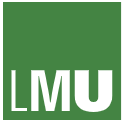Detailed introduction of Ludwig Maximilian University of Munich:
Introduction
Ludwig Maximilian University of Munich, referred to as the University of Munich (LMU), is one of the top public research universities in Germany and even Europe. It is located in the center of Munich, Bavaria, Germany, and has a profound historical and cultural heritage.
Overview
Number of students and faculty: In the winter semester of 2023/2024, the school has a total of 52,972 registered students, including 10,138 freshmen and 2,859 international students, accounting for about 28% of the total number of students. The school has 5,565 academic staff and 8,208 administrative staff.
Subject areas: Subjects cover many fields such as humanities and cultural studies, law, economics, social sciences, medicine, natural sciences, etc., providing students with a wide range of professional choices.
History and establishment time
The history of the University of Munich can be traced back to 1472. It was founded by Duke Ludwig IX of Bavaria-Landshut. At that time, it was called Ingolstadt University. It was the first university in the Alte Bavaria region and the eleventh university in the Holy Roman Empire. In 1800, affected by the Napoleonic Wars, the school moved to Landshut. In 1802, it was officially completed in the Dominican Monastery and renamed Ludovico University. In 1826, the school moved to Munich.
School Strength
Teaching Strength: It has many excellent professors and teachers who have made outstanding achievements in teaching and research. The curriculum is rich and diverse, focusing on cultivating students' innovative thinking, problem-solving skills and practical skills. It also provides students with opportunities to participate in scientific research projects to improve their scientific research literacy.
Scientific research strength: The University of Munich has strong scientific research strength and has been in a leading position in Germany and Europe since its establishment. The school has many top research institutions and laboratories, and has achieved many important scientific research results in the fields of natural sciences, medicine, social sciences, etc., and has cultivated a large number of outstanding scientific research talents, including 43 Nobel Prize winners.
Institutional nature
Public university.
Educational philosophy
Focus on cultivating students' innovative spirit and interdisciplinary thinking, encouraging students to communicate and cooperate between different disciplines to deal with complex real-life problems and promote the development of academic and social fields. Emphasize the close integration of academic research and practical application, so that students can apply what they have learned to practical work and contribute to society.
Key laboratories and disciplines
Key disciplines: Law, medicine, economics, philosophy, physics, chemistry, biology, mathematics, psychology and other disciplines have a high reputation and influence in Germany and even in the world. For example, the Medical School is one of the most prestigious and largest medical institutions in Germany, second only to the Charité Hospital in Berlin; the School of Economics is also one of the top economics schools in Europe.
Key laboratories: The school has a number of advanced key laboratories, such as the Center for Molecular Biological Systems, which provide researchers with good research conditions and have carried out a series of cutting-edge research work in the fields of life sciences, chemistry, physics, etc.
Department Settings
The University of Munich has 18 colleges, including the Catholic Theological Seminary, the Protestant Theological Seminary, the Law School, the School of Business Administration, the School of Economics, the Medical School, the School of Veterinary Medicine, the School of History and Art, the School of Philosophy and Religious Studies, the School of Psychology and Educational Sciences, the School of Cultural Studies, the School of Languages and Literature, the School of Social Sciences, the School of Mathematical Informatics and Statistics, the School of Physics, the School of Chemistry and Pharmacy, the School of Biology, the School of Earth Sciences, etc.
Rankings
2024 QS World University Rankings: 59th
2023 Times Higher Education World University Rankings: 33rd
2022 Academic Ranking of World Universities: 59th .
Expenses
Tuition fees: German public universities usually do not charge tuition fees, but you may need to pay a certain registration fee per semester, about 100-300 euros.
Living expenses: The cost of living in Munich is relatively high, and the monthly living expenses are about 800-1200 euros, including accommodation, food, transportation, books, etc.
Campus
Campus distribution: The campuses are distributed in the urban area of Munich and the surrounding areas. The main campus is located around Gschwester-Schöler Square and Professor Huber Square on Ludwigstraße, and extends to streets such as Archimedes Street, Schelling Street and Veterinary Street. In addition, there are other large campuses and research institutes, such as Grosshadden Campus (Grosshadden Hospital), Martinsried Campus (Chemistry and Biotechnology Campus), Ludwigsburg Campus (Inner City Hospital) and Lehel Campus (English Garden Research Institute).
Campus facilities: The school's architectural style is diverse, combining historical buildings and modern facilities. It has modern teaching buildings, libraries, laboratories, gymnasiums, canteens and other facilities, providing students with good learning and living conditions.
Campus culture: The campus culture is rich and diverse, with a strong academic atmosphere. Various academic lectures, seminars, cultural activities and sports competitions are often held. The school also encourages students to participate in community organizations and volunteer activities to enrich students' extracurricular life and cultivate students' comprehensive qualities and social responsibility.
-

Heidelberg University
-

University of Freiburg
-

University of Jena
-

University of Marburg
-

University of Rostock
-

University of Halle-Wittenberg
-

University of Bayreuth
-

Leipzig University
-

University of Tübingen
-

Humboldt University of Berlin
-

Mesoamerican University
-

Istmo University
-

Mariano Galvez University of Guatemala
-

Regional University of Guatemala
-

Galileo University
-

Francisco Marroquín University
-

Rafael Landívar University
-

University of the Valley of Guatemala
-

University of San Carlos of Guatemala
-

Technological Institute of Tlaxcala Plateau
-

Golfo University
-

Technological University of South Sonora
-

Technological University of Huejotzingo
-

Tizimín Institute of Technology
-

Chilpancingo Institute of Technology

